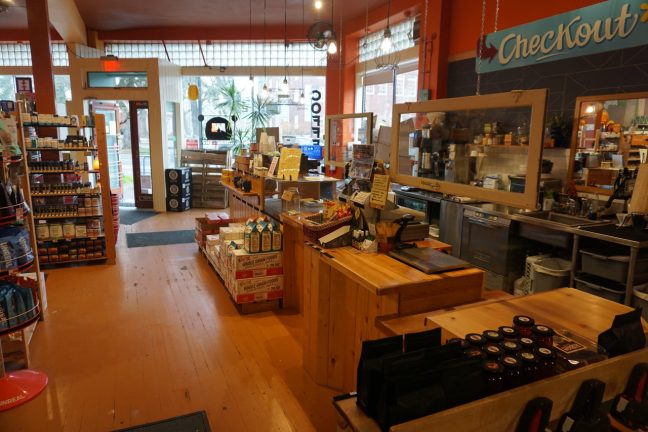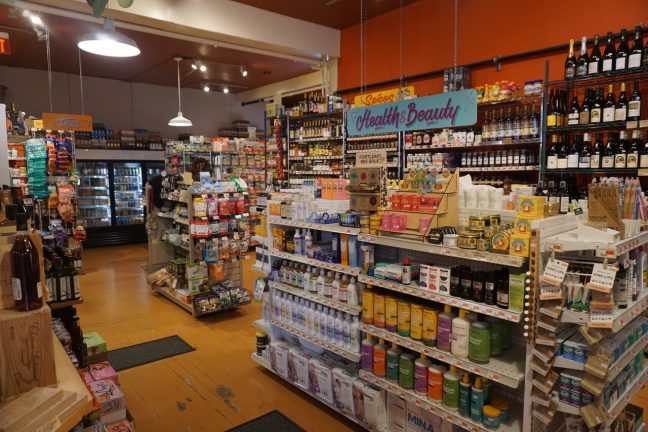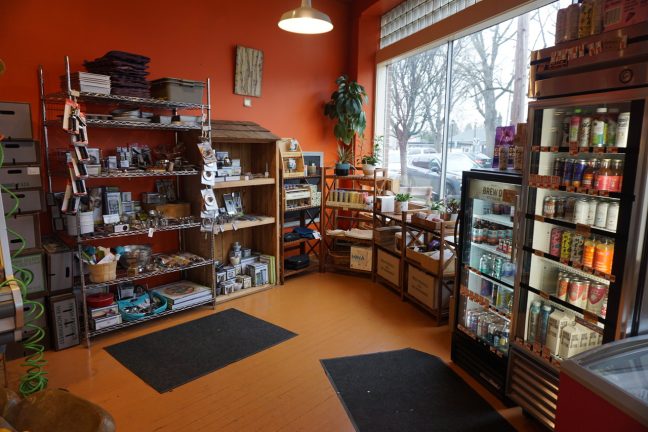Bread and Roses Market in Portland, Oregon, is an organic-focused grocery store “built by an employee.”
Navid Sam Nayebi, owner/operator, said he has had many jobs as a person of color where he experienced “a fair share of ill treatment from former employers, leading me to create a work environment where employees are treated well and respected.”

The market has been in business for five-and-a-half years.
Nayebi said he chose the name to say that “we, as a people, want better than what is offered” from stores where there isn’t any connection to owners, sourcing, farms, circumstances affecting food supplies, relationships with vendors and reasons for out of stocks.
“Here, we seek to bridge that gap. At any point, any customer has access to myself or can get a great deal of insight from any employee, since I make it a point to keep everyone in the loop as much as possible. Ideally, we are a small, three-person seasoned team that makes for a well-informed staff.”
He said Bread & Roses Market offers a clean space with great music, great lighting, prices that are considerably lower or just below the best prices available from other stores in town. It also offers “a caring interaction” at the register.
Building the space from scratch allowed Nayebi the opportunity to create an ergonomically correct work environment.
“There isn’t a lip on the floor where the mop bucket snags; the dishwasher is top of the line,” he explained. “An employee won’t find themselves reaching too low or too far in terms of repetitive movements. We aren’t walking on concrete floors; counter heights aren’t either too high or too low, everything is where you need it to be at all times.
“I’ve personally worked more hours here as a general clerk than any single employee ever might, so these details have meant a great deal to me. I like to think that we are serving a comprehensive workforce, respecting the experience of employees as well as respecting our customers as workers as well.”
In choosing to open an organic market as opposed to a conventional grocery store, Nayebi said it “plays down all the way to the waters we sell. It’s the general belief that pesticides ingested into the body will have adverse effects. Not only pesticides, but also PFAs, BPAs, synthetic dyes, growth hormones. The greater conversation goes into strains of wheat (simple bonds vs. complex bonds), qualities of yeasts.”
He noted that Bread & Roses has a version of Frosted Flakes cereal that is corn, sugar and salt only and “tastes great.” The market offers more locally sourced brands than a typical grocery store may have.

“The quality of products our local makers provide leans on thoughtfulness and sourcing,” Nayebi said. “The meats we sell are not factory farmed. Pork, beef and duck are all from a half-hour away; our chicken is from 45 minutes away. Bison and lamb are from farther down south. We sell wild-caught fish from the Oregon coast.”
Having those local sources was a definite plus during the COVID-19 pandemic.
“We currently have over 165 vendors, most of them local. It’s something that enabled us to provide for the community without interruption during the pandemic.” He said the store’s national products come from UNFI, “a company who held an extremely high standard throughout the pandemic and does so still.”
Nayebi said being a decision maker and buyer for the store allows him to replace items quickly, such as sriracha or black sesame seeds. “When an item or a replacement for an item is needed, I’m in the habit of quickly scanning through likely vendors and being able to pivot quickly, so the item or a substitute never goes missing from our shelves.”
Organic is Nayebi’s personal standard, although the store also offers non-organic items to meet demand.
A musician and performance artist with a bachelor’s degree in English, with an emphasis in creative writing and poetry, Nayebi’s grocery experience began at small store in San Francisco. There, he served as an assistant to the owner and learned how to run and operate a grocery store. It had been selling organic produce for more than 20 years when he began working there in 2005. He said Bread & Roses Market is “very much a recreation” of that store.
Nayebi said the grocery industry is complex, and he has been learning as he goes since opening the market.

“A grocery mentor of mine once said to me, ‘grocery is easy. Shipments come in through the back door and products get sold and leave through the front door.’ I try to keep that simplicity in mind since the industry is not simple at all.”
He said it is a hard business, “filled with perishables, relentless demand, continuous change and all at low margins with fierce competition. The plan is to keep on our path of growth and see where we’re headed.”
Effects of inflation
While inflation is something all grocers nationwide are dealing with, Nayebi said it has affected his business “in a positive way, mainly since our competitors’ prices have gone up, making those prices much easier for us to beat or match.”
Nayebi said he also has been able to “piggyback onto the new financial climate” by passing on credit card fees to customers for purchases under $12. That previously had been for purchases under $8. He said he also is aiming to charge his cost for paper bags so customers will pay for them rather than absorbing such costs.
There are places where inflation is affecting the business adversely, such as fuel charges for deliveries and cost of materials. He noted that the cost of bulk packaging containers went from about $47 a case to more than $115. Electricity in the county also just went up about 15 percent, “which will surely bring our electrical bill to a new record this summer.”
Nayebi said keeping up with price changes has been one of the most difficult aspects of inflation.
“We’ve done our best but still are finding items we’re selling at cost or even below cost, while under the assumption that we’ve been making somewhere close to margin, just like before.”
A bright spot for Bread & Roses Market is the fact that, just recently, all Walmart stores pulled out of Portland and a local grocery chain shuttered all three of its locations. This has allowed Bread & Roses to come into the spotlight with its higher quality items “at a price where you would pay to get half the quality elsewhere.”
The market also started running sales in January. “It feels great to have not only the everyday low prices we’ve offered but also incredible monthly rotating sales, as well.”
Love of grocery
Nayebi said he initially fell in love with small grocery because of its role in the community – providing wholesome, nutritious foods. His favorite part of the job since opening Bread & Roses Market has been watching the children of his customers grow. “I’ve already seen kiddos from the time they were born to preschool age.”
He also enjoys his customers. “Being able to provide great foods to them and keep everyone as informed and involved as possible, I think, is a great role to have. Not too long ago, I would have been able to say I know the names of 80 percent of the people who walk in through our door. Now it seems like that number may be closer to 60 percent as our customer pool continues to grow.”
Nayebi said he has “tremendous respect” for the businesses and people who provide raw materials and ingredients to people all over the world.
“It’s amazing how necessary everyone’s roles are, yet we’re treated as if we weren’t filling those roles, someone else just would step in and take our place. As sourcing becomes increasingly difficult, brick and mortars become more expensive to maintain and hold; equipment, gasoline and other necessities go up in price. My deepest gratitude to those who get up and provide in a larger scale every day.”
To read more market profiles from The Shelby Report, click here.

